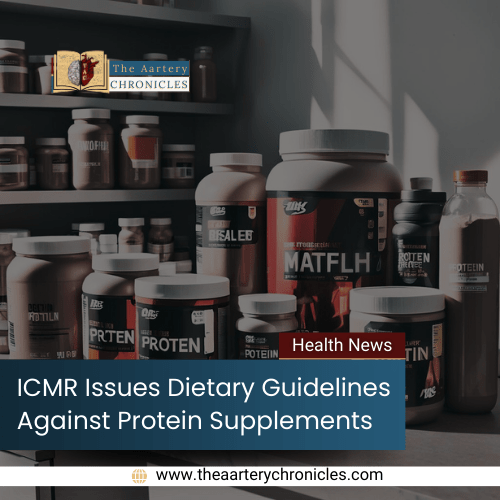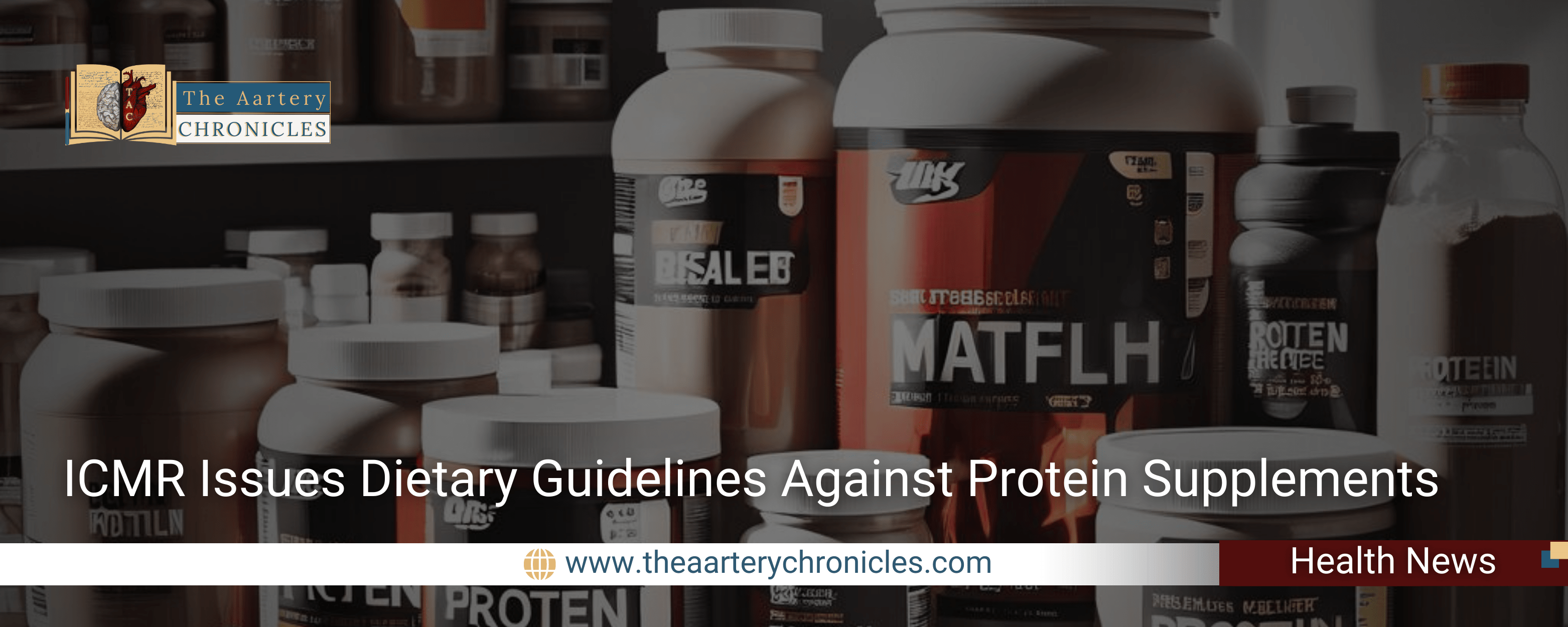

ICMR Issues Dietary Guidelines Against Protein Supplements
Introduction
The Indian Council of Medical Research (ICMR) National Institute of Nutrition (NIN) has recently released comprehensive dietary guidelines for Indians, shedding light on the increasing trend of protein supplement consumption, particularly among the youth. In a 148-page document, the ICMR has cautioned against the excessive utilization of protein supplements for bodybuilding purposes, highlighting the potential health risks associated with their consumption.
Protein Supplements: What You Need to Know
Protein supplements, often derived from sources like whey, have gained popularity among individuals aiming to boost athletic performance or muscle growth. However, the ICMR warns that such supplements, particularly those rich in branched-chain amino acids (BCAAs), may pose risks to health due to their association with non-communicable diseases.
On the other hand, excessive consumption can have serious impacts like insulin resistance and imbalanced neurotransmitters.
While plant-based sources like soybeans are the source of protein powders and supplements, the ICMR cautions against the additives used in these products for commercial gain. The health advantages provided by protein powders are reduced by added sugars, artificial sweeteners, and flavourings.
“A suitable blend of grains and pulses in a 3:1 ratio or by replacing 30g of the recommended amount of pulses with 80g of meat per day would enhance the quality of protein to meet the requirements of an average person,” according to the ICMR.
Understanding the Risks
The guidelines outline various health risks associated with protein supplement consumption
- Kidney Strain: High protein intake, especially from supplements, can strain the kidneys, potentially leading to damage or dysfunction, particularly in individuals with pre-existing kidney conditions.
- Dehydration: Excessive protein consumption can increase urinary output, necessitating adequate hydration to prevent dehydration and its associated negative effects on health and performance.
- Digestive Discomfort: Some protein supplements may cause digestive issues such as bloating or diarrhoea, often due to lactose intolerance or sensitivity to certain ingredients.
- Nutrient Imbalances: Relying solely on supplements for protein needs may result in nutrient imbalances, as whole food sources provide a broader spectrum of essential nutrients.
- Weight Gain: Contrary to popular belief, excessive protein intake, particularly from high-calorie supplements, can contribute to weight gain if not balanced with overall calorie intake and expenditure.
- Allergic Reactions: Individuals with food allergies or sensitivities may experience allergic reactions to certain protein supplements, ranging from mild to severe symptoms.
- Contamination Risks: Protein supplements, especially those sourced from animal products, may be contaminated with harmful substances such as heavy metals or microbial pathogens.
- Hormonal Imbalance: Consumption of protein supplements containing added hormones or hormone-like compounds may disrupt hormonal balance in the body, potentially leading to health issues.
Healthier Alternatives
The guidelines recommend a balanced combination of protein-rich foods, such as lean meats, fish, eggs, dairy products, and legumes, to ensure adequate daily protein intake and diverse nutrient consumption.
Conclusion
When it comes to protein supplements, it’s important to consider the potential health risks alongside the convenience they offer. To support your nutritional needs while minimizing the risk of adverse health effects, it’s best to prioritize whole food sources of protein and maintain a balanced diet.
Source: Inputs from various media Sources









